Search Images
Browse Content (p. 1588)
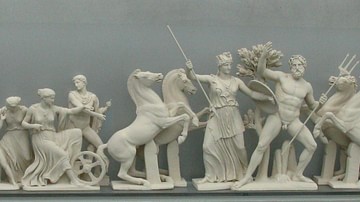
Image
West Pediment of the Parthenon (Reconstruction)
A reconstruction of the west pediment of the Parthenon where Athena and Poseidon battle for the favour of the Athenians flanked by the ancient kings of Athens, including Kekrops.
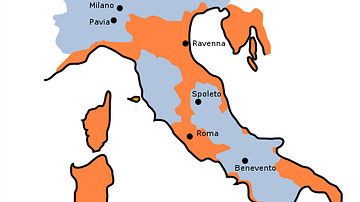
Image
Map of Lombard Kingdom, 575 CE
Map of Lombard Kingdom at the time of King Alboin's death, 575 CE
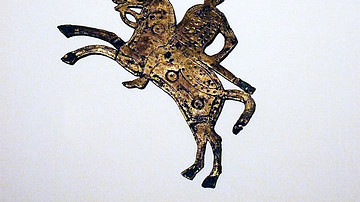
Image
Lombard Horseman Shield Mount
Lombard Horseman Shield Mount from an elite burial in Stabio (Ticino), gilded sheet bronze, now in Historical Museum of Bern.
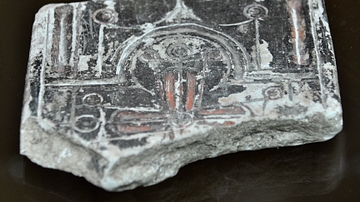
Image
Gypsum Cross from Darbandi Bazian
This piece is part of a collection of gypsum crosses which were found in Darbandi Bazian, modern-day Sulaimaniya Governorate, Iraq. They date back to the late Sassanid/early Islamic period, 3nd to 7th centuries CE. The Sulaimaniya Museum...
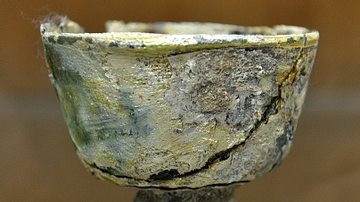
Image
Glass Beaker for Ritual Services
This glass beaker was used for religious rituals and communal services and dates back to the Parthian/Sassanid period, 350 BCE to 636 CE. From Mesopotamia, modern-day Iraq. The Sulaimaniya Museum, Iraq.
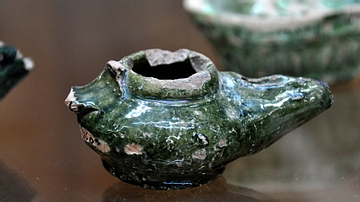
Image
Pottery Lamp
This glazed pottery lamp dates to back to the 6th century CE. From Mesopotamia, modern-day Iraq. The Sulaimaniya Museum, Iraq.
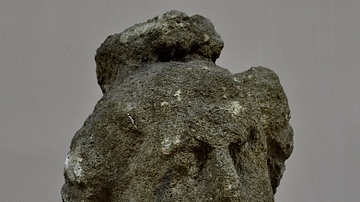
Image
Woman's Head from Hatra
This head from a statue of a woman was found at Hatra (Al-Hadhr), modern Al-Jazira Region, Ninawa Governorate, Mesopotamia, Iraq. 2nd to 3rd centuries CE. The Sulaimaniya Museum, Iraq.
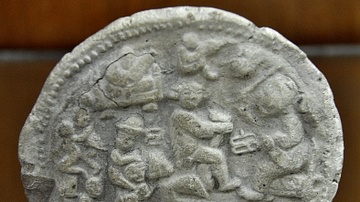
Image
Pottery Plaque from the Hellenistic Period
This round pottery plaque depicts various human daily activities. In the middle, a man and a woman are having sex, and on the left, a standing woman holds a young child on her shoulders. Hellenistic Period, 323-30 BCE. From Mesopotamia, modern-day...
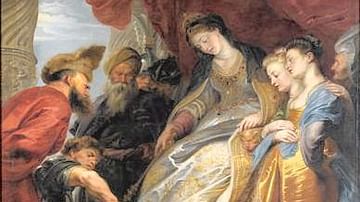
Image
The Vengeance of Tomyris
The Vengeance of Tomyris, by Peter Paul Rubens, 1620-1625 CE, Salon d’Apollon, Grands appartements du Château de Versailles, France
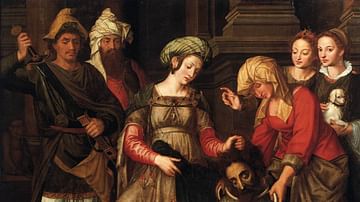
Image
The Revenge of Tomyris
The Revenge of Tomyris by Michiel van Coxcie (c. 1620 CE). On display at Akademie der bildenden Künste, Vienna. Tomyris was queen of the Massagetae who successfully defended her people against a Persian invasion led by Cyrus the Great...